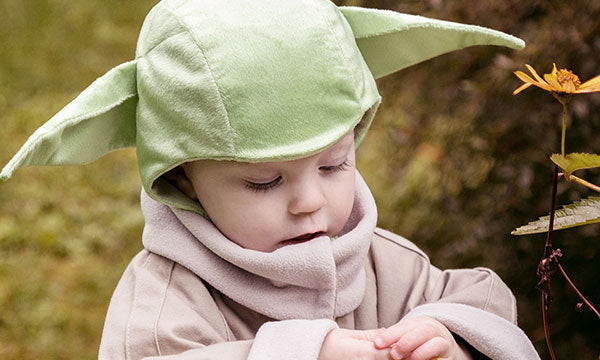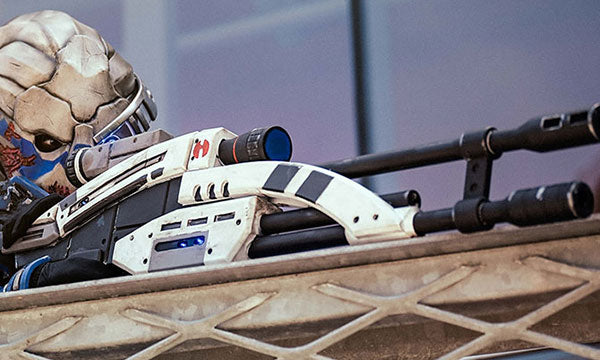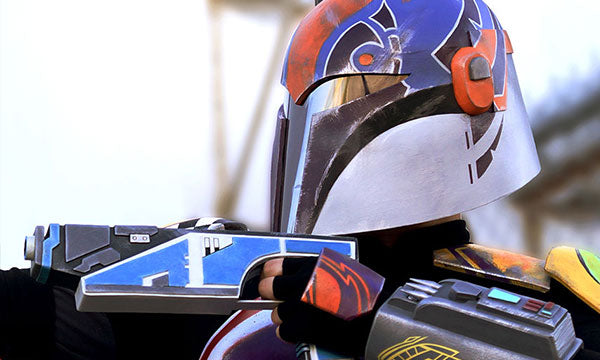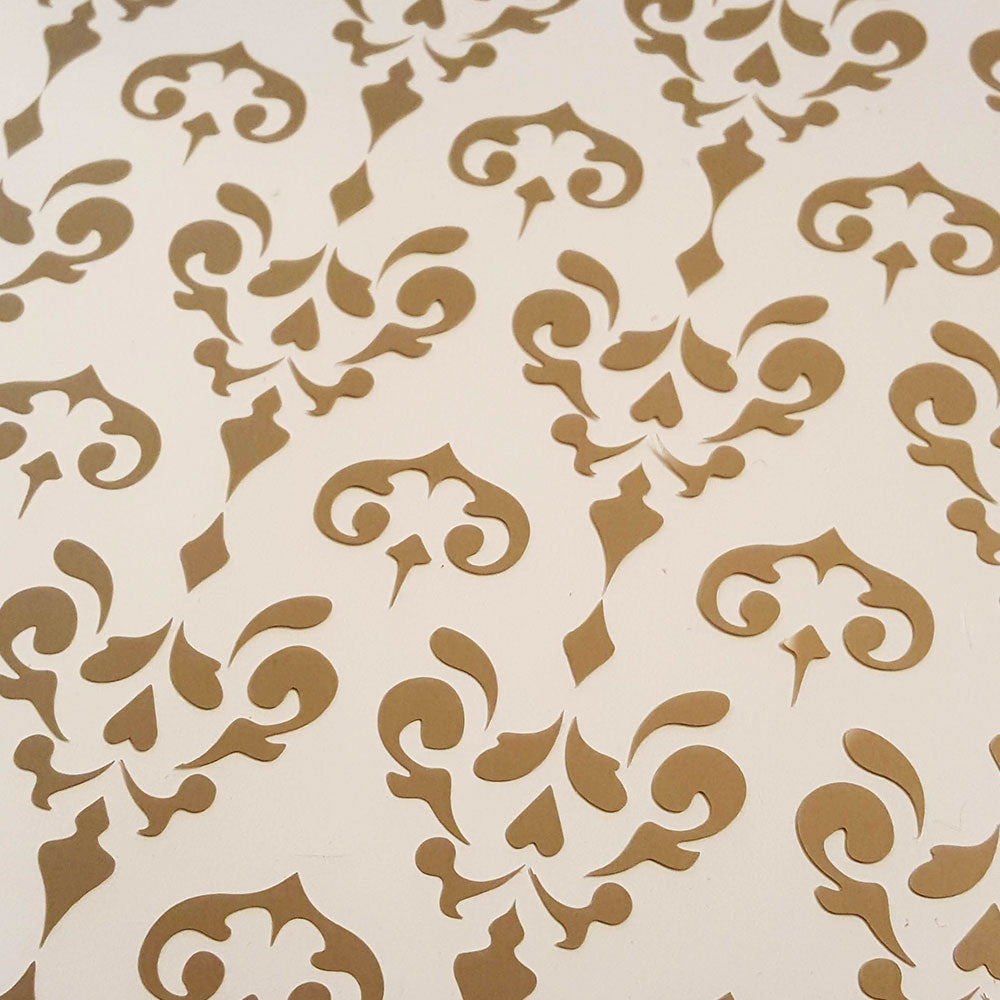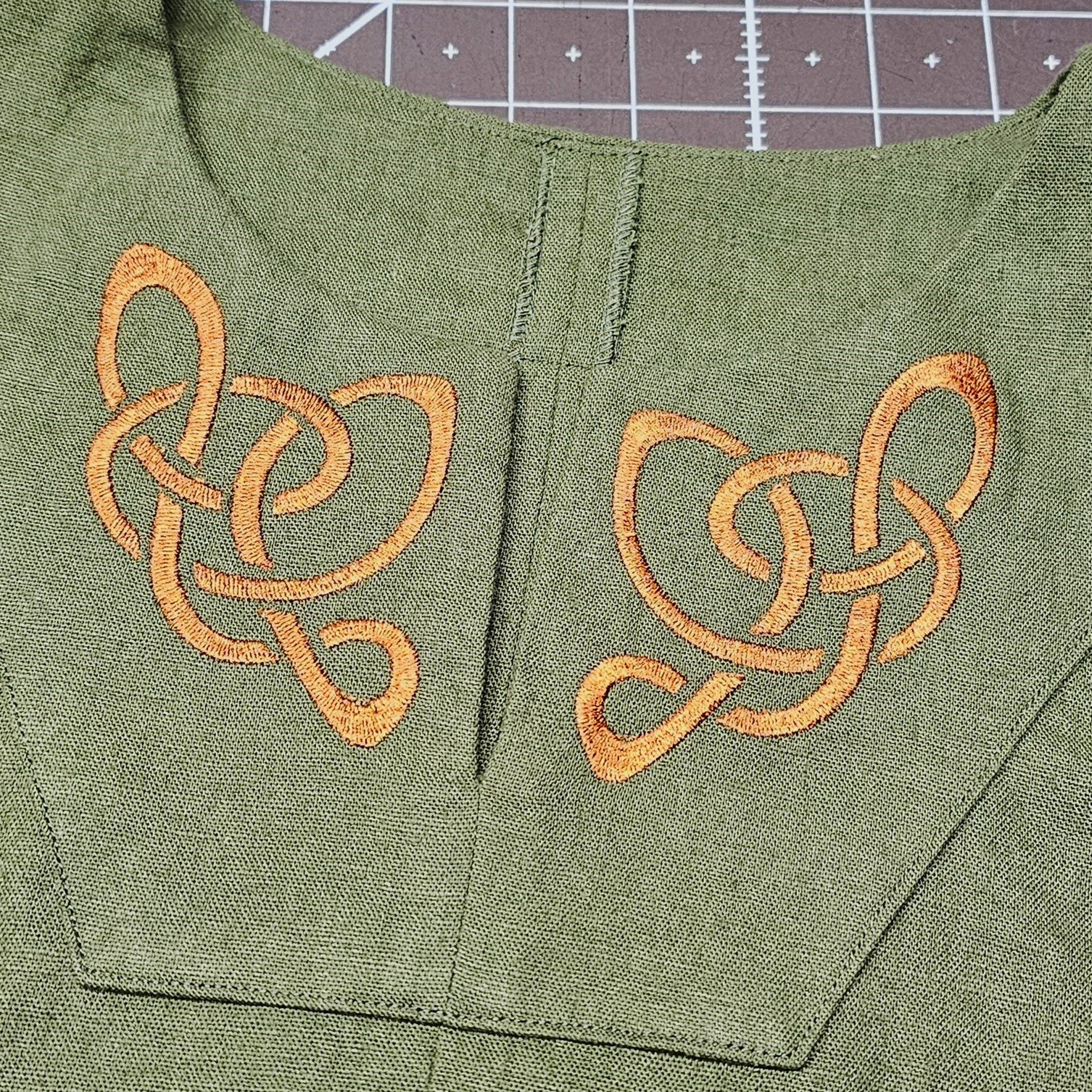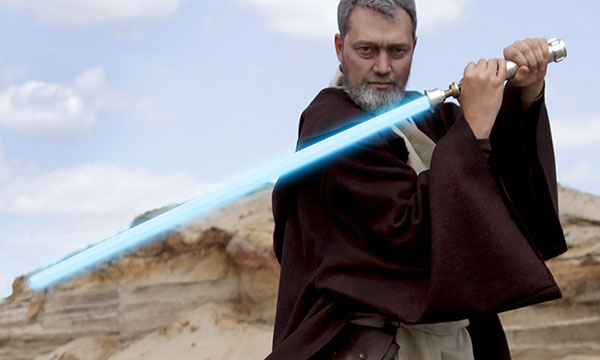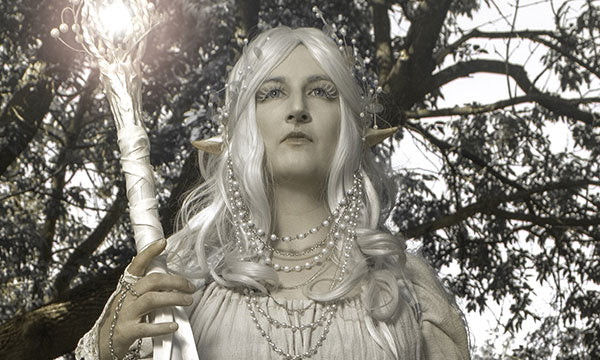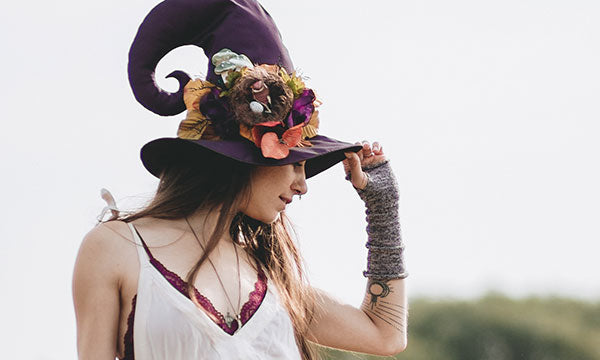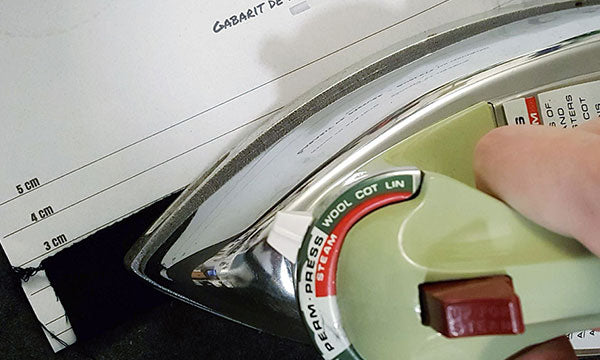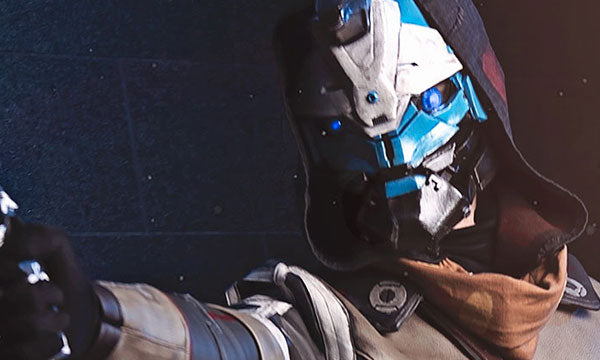Buy a good sewing machine for cosplay
A few years ago, I was giving sewing lessons. And a question that kept coming back.
"What sewing machine should I buy?"
Even today, I am often asked this question.
Since it's not something you buy every year (luckily!), I'm not always up to date with new models (I've had the same machine for over 15 years, now). And there are so many on the market, it's only normal to be a little lost. Especially if this is your first purchase.
So, let me give you some tips to get you started.
4 criteria
Your budget

There is something for everyone... and every budget. It starts at $ 70-80 (really, really entry-level, I don't recommend that), and it goes up to $ 3000-4000 and more (I don't recommend that either for your first sewing machine).
Somewhere between $ 150 and $ 500, there is a wide variety of great models perfect for those who are just starting out.
Take the time to think about how much you are willing to invest. It will influence your choices quite a bit.
Your experience

Your sewing experience is quite related to your budget: If you're a super beginner (like I've never threaded a needle), you won't invest as much as if you are already sewing for a while. This is totally normal.
If you are just starting to make costumes, and think to yourself "it would be a nice addition to get a sewing machine", but really, you've never sewn anything at all, don't go all out and invest your pension fund in buying a machine... You'll hate yourself if you realize that you are not so fond of sewing after all.
Don't be swayed by the promises of ease that come with a higher end machine. There are small machines at a fairly reasonable price that will follow you for a long time.
I'm telling you: start simple. Master the basic tools. And then, when you're awesome enough at sewing to know why your sewing machine is preventing you from going any further, that's when you're going to be ready to upgrade . Honestly, there's no point having something super high end if you're not equipped to handle it yet.
Your favorite subjects

If you just sew simple cotton fabrics, you won't need something as sturdy as you would with heavy woolens and leather. Thicker and stiffer materials generally require a more sturdy machine.
Normally, if you want to make costumes, chances are you want to work a wide variety of materials, right ? Keep this in mind when shopping.
Your style


Beyond making a straight stitch or a zig zag stitch, sewing machines often have all kinds of different options and stitches. This is a criteria to be taken into consideration.
Do you want some fantasy stuff? Do you want to embroider? Do you want to be able to make beautiful buttonholes? Or do you just want to sew straight seams?
If you are into fancy, lot-of-frill princess cosplay, you might not want the same features on your sewing machine as if you just want to make straps for your armor more easily.
Think about what interests you.
4 things to do
Make a checklist of the details you like
It's not easy to do if you've never really machine-sewn anything, I admit. But if you have, even just a little experience, you probably know what you like and what you don't like about a sewing machine.
If you're super newbie , I have a few points for you:
-
Speed adjustment

Entry-level machines often have slightly less responsive pedals. To overcome this, check if you can manually adjust the speed. A machine on witch you can reduce speed is going to be easier to master at first.
-
Free arm / Table

Your sewing machine should have a part that can be remove so you can slip (let say) a sleeve under your foot. There are also some machines that come with a table. Personally, I don't have it and I'm doing great, but I know some people use it quite a bit. This is useful so that your project is better supported while you sew.
-
Variety of points

Basically, you should have the straight stitch, and the zig zag stitch. And honestly, you can go a damn long way with just that. The rest depends on your style (see the 4th criteria, above). Don't be fooled by machines that offers 300 fancy points just because it's cute (unless that's something you think you'd really use). However, the option of making buttonholes is quite important in my opinion.
-
The position of the needle

Being able to change the position of your needle is pretty handy. Basically, for a straight seam, your needle should be in the center. But having the option to put it all the way to the left, or to the right, is quite useful (for doing different stitch widths, for example). Anyway, I love this feature on my machine.
-
The shape of the foot

Check the look of the standard foot. You may not know it yet, but you'll really appreciate a foot on wich the center is at a right angle rather than a diagonal. It gives you more markers and it'll help you make straighter seams (especially when you sew near the edge).
-
Variety of feet

More and more, basic sewing machines come with a nice variety of specialized feet. There's a bunch of them that you won't necessarily use often. But make sure you have the 2 most important: the zipper foot and the buttonhole foot
-
Foot pressure

It's really not available on all machines, but when it is, it's super nice. If you plan on making costumes, you might end up working a lot of different materials (and if you're a bit like me, it's not just fabric that will go under your machine's foot). Having the option of adjusting the pressure of the foot is very handy to adapt to the material you are sewing.
-
Threader

That's a small gadget ... it's not a must have, but it's handy if the thought of running your thread through your sewing machine needle gives you ulcers. Don't base your purchase on that, but if it's there, that's a nice plus.
Check the reviews
Not just on a site (especially if it's the company site). Type the name of the model you are interested in into Google, and check out different reviews. On forums, on distributor sites. Look for long negative comments. Why? Because those comments usually tell you the most about the machine.
And it's not even always that bad anyway. A person who gave a bad rating to a machine just because it does not come with a carrying case, that may indicate to you that the machine is not that bad (and the client was just a little whining…).
Obviously, also check the long positive comments. They will tell you a lot about the good sides of the machine.
Weigh the machine
Ok, don't come to the store with a scale… but lift the machine. If it's really heavy, that's fine. But she doesn’t weigh much, it’s not likely to be a great model.
A lightweight sewing machine is a sewing machine with a lot of plastic parts. And plastic parts move more, they get misalign… and they break more easily.
You want a good, heavy machine.
Test the machine, if possible
That means, not just shop online. Yes, it's a good idea to search the internet (this is where you'll find reviews, among other things). But, if you can, check out the models in store. Specialty shops will allow you to try out the machines, normally. This will give you the opportunity to see if you feel it.
One of the things to check is the pedal. As I mentioned above, entry-level machines are often less responsive. Check the sensitivity of the pedal to see if it can be controlled anyway.
Another trick is to test different fabrics. Bring scraps if necessary, but don't just test the machine with small basic cotton canvas. This kind of fabric is easy to sew anyway. If you like leatherette, bring scraps of leatherette. If you go crazy with shear fabric, bring some with you. Test different things.
- - - - - ✂✂✂ - - - - -
Finally, here are a few brands that you can consider when shopping.
- For entry level machines: Brother and Singer
offer good models not too expensive. - In the mid-range, you have Janome who has an excellent reputation.
- For high-end machines: you can't go wring with Bernina, Husqvarna (this is the brand of my machine) and Pfaff.
Take your time. Think about what you want. And what the different machines offer. A sewing machine is a great addition to your crafting workshop. Make sure you don't buy just anything.
Talk to you soon.
Until then… Keep on crafting!
🤓✂🐙


